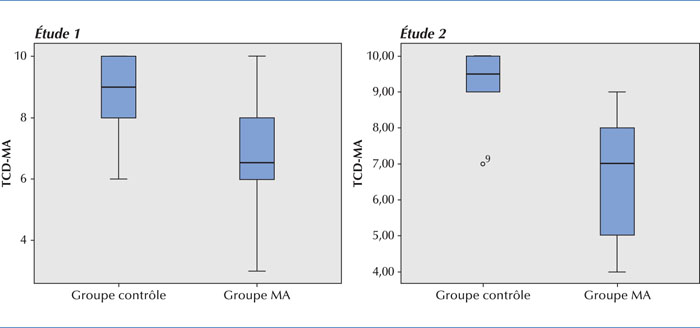Revue de neuropsychologie
MENUIntroducing the Short Naming Test for Alzheimer's disease patients (SNT-AD) Volume 13, issue 3, Juillet-Août-Septembre 2021
- Key words: screening, naming, Alzheimer's disease
- DOI : 10.1684/nrp.2021.0683
- Page(s) : 214-22
- Published in: 2021
Our research aimed to propose a quick-to-administer tool for screening naming disorders in Alzheimer's disease (AD). These difficulties appear from the early stage of AD. Our Short Naming Test for AD (SNT-AD) is a very quick investigation of individuals’ naming abilities and comprises 10 black and white pictures. We carried out two studies. In the first one, we administered the SNT-AD to 55 participants: 26 individuals at the early stage of AD (MMSE >20), and 29 elderly people without cognitive disorders, matched in age, gender, and socio-cultural level. The results show that the performances of the participants in the two groups differ significantly. In the second study, we compared the performances of a group with early AD and a control group, on the SNT-AD, the BARD (batterie rapide de dénomination), and the ExaDé (batterie d’examen des troubles en dénomination). The SNT-AD and the ExaDé significantly distinguished our groups, but not the BARD. Finally, we computed an ROC analysis for all the participants of study 1 and 2 (n = 91). At the threshold of three errors, the sensitivity of the SNT-AD reaches 70.5 % and the specificity equals 91.4 %. In conclusion, the SNT-AD is a quick-to-administer tool, making it very suitable for clinical as well as experimental uses. Our results are encouraging and lead us to propose that this tool be used by front-line practitioners when screening for AD.


